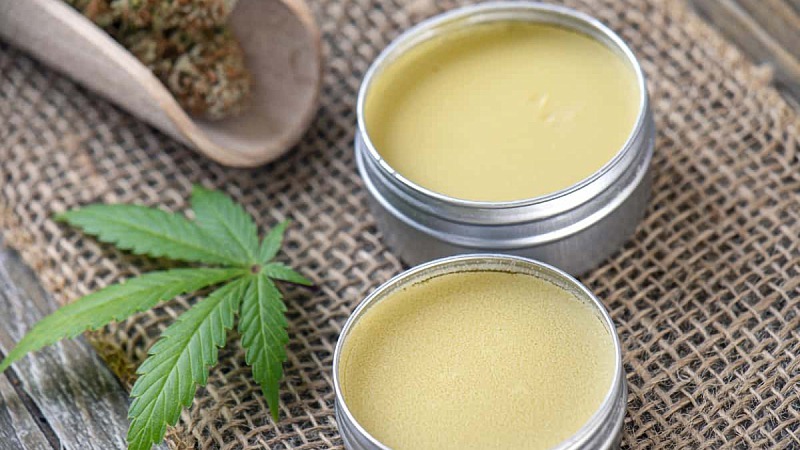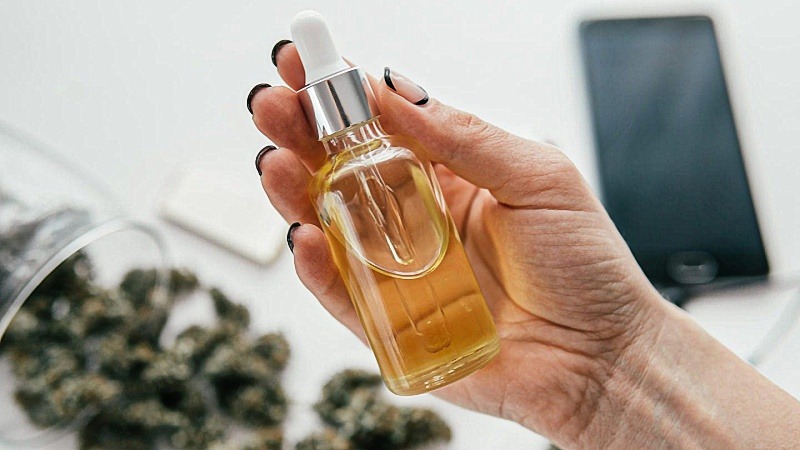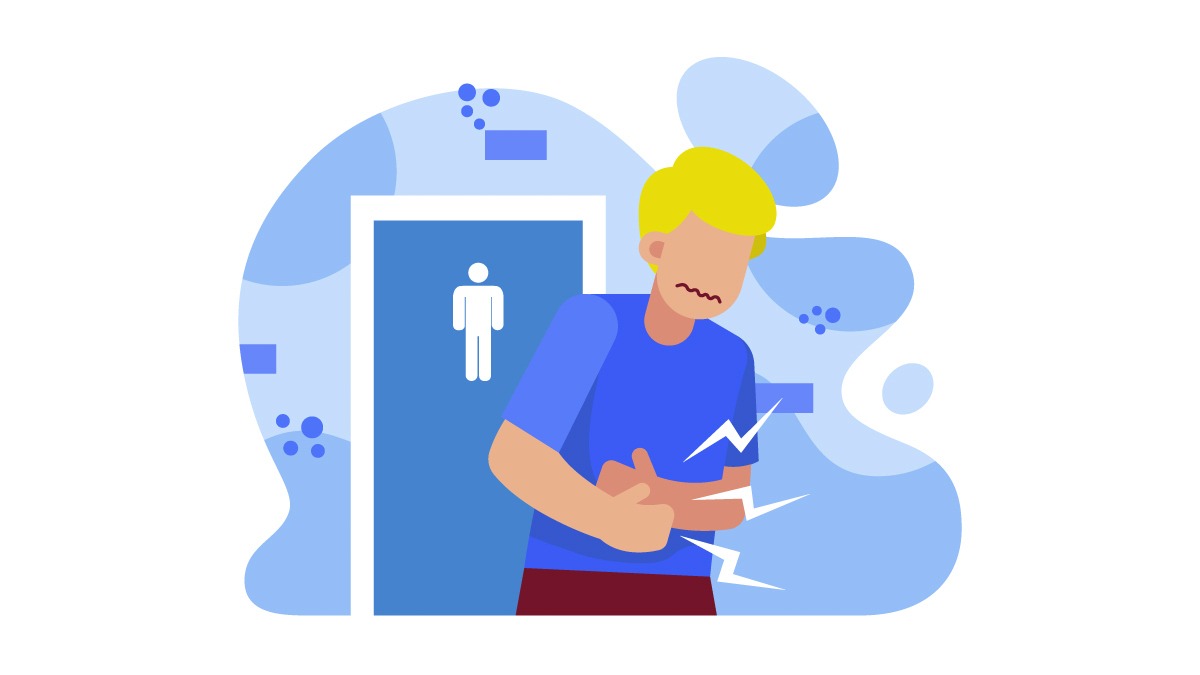Although research is still in its relative infancy, studies have shown CBD to be safe to use and regularly consume, even in high doses.
However, like every compound, CBD consumption can produce side effects, and it also has the ability to interact with medication negatively. Although it’s always best to consult a medical professional before starting a course of any new supplements or drugs, this article will explain the basics of the possible side effects you may experience and when CBD should not be consumed.
Quick Answer: Side Effects of CBD
Despite promoting physical and cognitive feelings of relaxation and peacefulness, the effects of CBD are nothing like the high experienced after consuming THC. This is because CBD does not directly bind to the same CB1 receptors as THC.
It’s common for people to feel the following after consuming CBD:
- Relaxed physically (CBD can relieve muscle tension)
- De-stressed and less anxious
- Calm and peaceful
- Free from pain (CBD can have analgesic properties)
- Focused
- Motivated
There are, however, some common side effects of CBD that could be considered adverse. These include:
- Drowsiness
- Dry mouth
- Nausea/vomiting
- Diarrhea/gastrointestinal issues
- Adverse interactions with medications
Vaping CBD and Its Side Effects
Vaping is a popular method of CBD consumption. It involves heating the CBD and inhaling it using something similar to an e-cigarette.
Firstly, vaping is not for children — they should always consume CBD another way. But for those who decide vaping is the best method of consumption, it’s worth noting that it may have slightly different side effects, such as oral consumption.
As the CBD is absorbed through the capillaries in the mouth and the lungs, it bypasses the digestive system. This means although the effects are relatively short-lived compared with oral consumption, they can be felt almost instantly. Higher doses may make the user feel drowsy and/or light-headed immediately after vaping CBD.
It’s worth noting that vaping, in general, may have adverse side effects.
In 2018, a study assessed the lung function of people who had never smoked cigarettes after they’d vaped fluids both with and without nicotine [1]. The results showed that vaping — whether the fluid contained nicotine or not — disrupted normal lung function in otherwise healthy lungs. However, the sample size was only 10 people, so the results are not conclusive.
Side Effects of Topical CBD

Many CBD products contain other ingredients in the formula, often targeted towards specific skin conditions. These include essential oils that help soothe irritated skin.
These additions may cause side effects such as a rash or irritation for some people, so it’s important to read the full list of ingredients in the formula. If this occurs, stop using the product and consult a dermatologist.
Common Side effects of CBD
Drowsiness
It’s not uncommon for people to feel drowsy after consuming CBD. While some people may consider this to be a benefit (and CBD is often used for insomnia), others experience it as a negative side effect.
Dr. Jas Matharu-Daley, Physician at LA County Department of Public Health, notes that the effects might be too strong if you’re also taking CBD with other sedating medications. The best option to avoid this is to start with a low dose of CBD and build up slowly until you find your optimum level.
Dry Mouth
It’s not out of the question that CBD will cause your mouth to feel parched. This is sometimes also referred to as “cotton mouth.” It can also have a similar effect on the eyes.
It’s worth pointing out that this is more likely to occur after consuming THC, but don’t be alarmed if it happens after consuming CBD — it will soon pass.
Nausea/Vomiting
Put simply, some people just don’t tolerate CBD well, especially in high doses, and may experience nausea. This can sometimes lead to vomiting and/or dizziness, but it will pass as your body processes the CBD, and it leaves the bloodstream.
Again, starting low and going slow in terms of dosage will minimize the chance of this happening.
Diarrhea/Gastrointestinal Issues
Some people may experience gastrointestinal issues such as diarrhea after consuming CBD. However, this is usually after a high dose and often dependent on the individual and their medical history. If you experience this side effect, stop use immediately and consult a medical professional for advice.
As mentioned previously, it’s best to start with a low dose and increase it gradually to avoid any unpleasant gastrointestinal issues.
Adverse Interactions with Medications
Like every compound, CBD has the ability to interact with other substances to produce stronger adverse side effects. When mixed with certain prescription drugs, it can even pose serious risks.
The cytochrome P450, also known as CYP450, is a group of liver enzymes involved in the metabolizing process of more than 60% of drugs and toxins inside the body. However, certain substances can interact with the CYP450 system and affect the metabolizing process, making it slower or faster. This can have adverse effects on the body.
By inhibiting the CYP450 system – specifically, CYP3A4 and CYP2D6 enzymes — CBD can temporarily deactivate its activity, altering how other compounds are metabolized by the liver [2]. This may have the effect of delaying the metabolizing process of certain medications that also use the CYP450 system, causing them to stay in your system longer — and sometimes causing their effects to be stronger and longer-lasting.
Drugs that are known to use the CYP450 system include, but are not limited to:
- Steroids
- HMG CoA reductase inhibitors
- Calcium channel blockers
- Antihistamines
- Prokinetics
- HIV antivirals
- Immune modulators
- Benzodiazepines
- Antiarrhythmics
- Antibiotics
- Anesthetics
- Antipsychotics
- Antidepressants
- Anti-epileptics
- Beta-blockers
- PPIs
- NSAIDs
- Angiotensin II blockers
- Oral hypoglycemic agents
- Sulfonylureas
How To Avoid Side Effects When Consuming CBD

CBD helps the body’s endocannabinoid system (ECS) maintain homeostasis (balance) through the activation of CB receptors throughout the body. However, it isn’t possible to accurately predict an individual’s reaction before trying it because the ECS influences so many different bodily functions, both physical and mental.
In other words, everyone’s different, so what works for your friends and family won’t necessarily work in the same way for you. It’s always best to start on a low dose and slowly increase it when initially experimenting with CBD. This way, you can monitor the effects, gradually increasing until the optimum results are achieved.
According to the National Cancer Institute and other experts, it’s impossible to fatally overdose on CBD, which minimizes the risk of experimentation [3]. However, we’d always advise consulting a medical professional beforehand, just to be safe.
Who Should Not Take CBD?
Although we’ve already explained how CBD may react with prescription drugs, there are still some other instances in which it may be unsafe or unwise to consume CBD.
If You’re Pregnant or Breast-Feeding
Much more research is needed before we can say whether CBD is safe for fetuses and newborn babies — but, unfortunately, it’s unlikely that this will happen due to ethical reasons. However, there may be cases in which taking CBD outweighs the risks — such as if you’re suffering from conditions that would otherwise be treated with stronger prescription drugs.
It’s always best to consult a medical professional before taking any new supplement — especially when breastfeeding. They’ll be able to advise you on the best way forward based on your individual circumstances.
If You Suffer From Mental Health Issues
Several studies have linked marijuana use to increased risk for psychiatric disorders, including depression, anxiety, psychosis (schizophrenia), and substance use disorders [4]. This is predominantly due to the THC present in marijuana, so you don’t have to worry if you’re consuming CBD isolate.
If, however, you live in a state in which medical and/or recreational marijuana consumption is legal, you may be able to purchase CBD that contains a THC level of above 0.3%, which is the limit stipulated by federal law. Make sure that you know exactly what you’re consuming and seek medical advice beforehand if necessary.
How to Choose CBD Products
To date, the US Food and Drug Administration hasn’t officially approved CBD for consumption. Consequently, the industry is loosely regulated.
There are no generalized standards for manufacturers to adhere to, so almost anything can be labeled and sold as a ‘CBD product.’ Research conducted in 2017 found that a worrying 70% of CBD products that were tested were in some way mislabeled [4].
High levels of heavy metals, pesticides, and toxins can make the consumer extremely unwell, so you must buy your CBD products from a trustworthy manufacturer.
CBD companies should be displaying a Certificate of Analysis (CoA) for every product that proves that it’s undergone third-party lab testing. This is when a manufacturer sends samples of all its products to an independent laboratory, which tests them and provides full, comprehensive results to be displayed proudly.
The CoA indicates the purity, potency, overall contents, and quality of the extract, so you know exactly what you’re consuming. This will also indicate whether the manufacturer has used a good hemp source and top-quality cultivation and extraction processes.
If you can’t find an up-to-date CoA for a CBD product you’re thinking about buying, look elsewhere. If it means spending a bit more time and paying a little more, it’s well worth it.
Final Thoughts
In short, CBD consumption is safe in most cases for the majority of people. But like with any new supplement or medication, there are possible side effects, so you should always proceed with caution just in case you experience any.
You can rest easy in the fact that, unless you fall into the category of those who should avoid consuming CBD altogether — whether that’s due to mixing with prescription drugs or because you’re pregnant or breastfeeding — the side effects you experience, if any, are likely to be mild.
Drowsiness, dry mouth, nausea/vomiting, and diarrhea aren’t pleasant, but if you do have to deal with these adverse effects, they’ll be short-lived and non-life-threatening. Still, it’s always best to start at a low dose and increase it gradually to mitigate the risk of experiencing any of the side effects outlined in this article. Of course, if you’re still worried, consult a medical professional first.
References Used In This Article
- Staudt, M. R., Salit, J., Kaner, R. J., Hollmann, C., & Crystal, R. G. (2018). Altered lung biology of healthy never smokers following acute inhalation of E-cigarettes. Respiratory Research, 19(1), 1-10.
- Bornheim, L. M., Everhart, E. T., Li, J., & Correia, M. A. (1993). Characterization of cannabidiol-mediated cytochrome P450 inactivation. Biochemical pharmacology, 45(6), 1323-1331.
- Campolongo, P., Trezza, V., Cassano, T., Gaetani, S., Morgese, M. G., Ubaldi, M., … & Cuomo, V. (2007). PRECLINICAL STUDY: Perinatal exposure to delta‐9‐tetrahydrocannabinol causes enduring cognitive deficits associated with altered cortical gene expression and neurotransmission in rats. Addiction Biology, 12(3‐4), 485-495.
- Bonn-Miller, M. O., Loflin, M. J., Thomas, B. F., Marcu, J. P., Hyke, T., & Vandrey, R. (2017). Labeling accuracy of cannabidiol extracts sold online. Jama, 318(17), 1708-1709.

